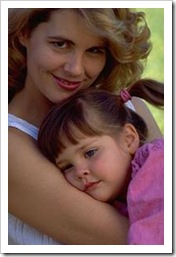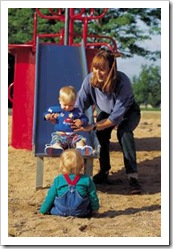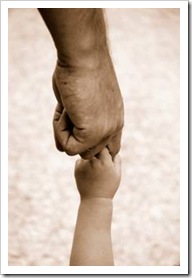 Whether we like it or not, problems are part of life. Success is not about what happens to us in life, but about what we do with it – the good and the bad. One of people’s irrational rules of living is the expectation to be able always to find a solution to a problem, when life has many situations that cannot be fixed.
Whether we like it or not, problems are part of life. Success is not about what happens to us in life, but about what we do with it – the good and the bad. One of people’s irrational rules of living is the expectation to be able always to find a solution to a problem, when life has many situations that cannot be fixed.
In her book “Loving What Is: Four Questions That Can Change Your Life” (highly recommended!), Byron Katie describes many difficulties in life as being caused by such a rule.
The movie “The Butterfly Effect” plays with the idea of fixing.
Children get their attitude towards life from their “socializing agents” – parents, family members, friends and teachers. If their agents expect to be able to find a solution for every problem, it is very likely the kids will adopt this rule too.
Here is what the problem solving rule states:
Every problem should have an ideal solution, and it is intolerable when one cannot be found
Difficulties are hard to handle with this rule and children, not having enough life experience to find solutions to problems, are exposed to negative feedback about their irreversible mishaps. The result is a great feeling of helplessness and fear of failure.
People adopting the irrational problem-solving rule will find it hard to deal with overwhelming situations like:
- Serious sickness
- Someone’s death
- Financial difficulties
To feel better about being unable to solve problems, kids naturally turn to the grownups in their life, mostly their parents, and translate the problem-solving rule to this:
Mom and Dad should have an ideal solution for every problem, and it is intolerable when they cannot solve it
 Many kids grow up believing their parents have the solutions to all their problems. I remember my first experience realizing they were not almighty and able to fix everything as one of the most traumatic events in my life.
Many kids grow up believing their parents have the solutions to all their problems. I remember my first experience realizing they were not almighty and able to fix everything as one of the most traumatic events in my life.
I was just 15 and we were out for a picnic day on the lake. I took off my watch (a very expensive watch I had gotten as a gift for my 15th birthday) and put it in the bag to make sure nothing would happen to it. We had the most wonderful day with other family member and at 4pm, I went to shower and looked for my watch. I looked everywhere and could not find it. I asked everyone around. They looked in their bags and around the picnic area and could not find it. I told my parents and joined to a party that was going on nearby, confident my parents would find my watch, as they had always found everything else.
It was late at night when we went home and I came to my parents and asked them about the watch. They looked at me and said, “We could not find the watch” and I thought they were joking. “What do you mean?” I asked my dad and he said again, “We could not find the watch”.
The first thing that came into my mind was, “But you always do”. I remember the feeling I had. My heart was pumping and I had a sinking sensation, because my parents were not magicians and my watch was gone. I had lost something that meant more to me than my watch – the confidence that my parents were strong and knowledgeable and had the answers to everything. I think the hardest part was realizing I had lost something I had never had.
 Every kid goes through a similar experience in life, typically during the teen years.
Every kid goes through a similar experience in life, typically during the teen years.
My oldest daughter was 4½ years old when she got hit by this realization. One of the greatest days of her life turned into a nightmare. She held her long-awaited baby brother in her hands one day and the following day, she went with Gal to order a coffin for him.
It was a very cruel situation at this young age to discover that her parents, having promised her a baby for so long, did not have the power to keep their promise. Her parents were helpless themselves.
Naturally, to protect our children from sorrow, we pretend to know all and hide our difficulties from them, when in fact this only propagates the rule of having a solution for every problem. I do not wish any kid (or grown up) such tragic circumstances to understand how irrational this rule is, but I think we can, as parents, present ourselves in a more realistic image of vulnerability.
When you are hurt – tell your kids about it.
When you are sad – tell your kids about it.
When you feel helpless – tell your kids about it
You may not want to let them in on the full details of everything or burden them with all the grownup things, but you can always find a way to share your feelings with them.
 If you want to raise children who consider this rule hard to live by and adopt the opposite rule that we can aim to find solutions but there are things we cannot do, teach them this serenity prayer.
If you want to raise children who consider this rule hard to live by and adopt the opposite rule that we can aim to find solutions but there are things we cannot do, teach them this serenity prayer.
God, Grant me the
Serenity to accept the things I cannot change
Courage to change the things I can, and the
Wisdom to know the difference
And let them know you are only human.
Join me tomorrow for “Irrational rules of living – Right and Wrong.
Happy day,
Ronit
This post is part of the series Irrational Rules of Living:
- Irrational Rules of Living – External Approval
- Irrational Rules of Living – Self Worth
- Irrational Rules of Living – Problem Solving
- Irrational Rules of Living – Right and Wrong
- Irrational Rules of Living – My Way or the Highway
- Irrational Rules of Living – Disempowerment
- Irrational Rules of Living – Anxiety
- Irrational Rules of Living – Avoidance
- Irrational Rules of Living – Dependency
- Irrational Rules of Living – The Power of the Past
- Irrational Rules of Living – Sympathy
- Irrational Rules of Living – Discomfort and pain











